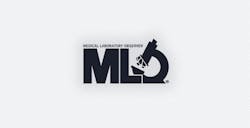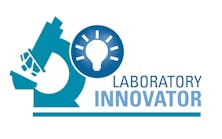The Observatory
News/ Trends/ Analysis
AIDS experts urge routine HIV testing.
Two medical organizations, along with researchers at the University of
Alabama-Birmingham, have announced they strongly recommend universal and
routine testing for human immunodeficiency virus (HIV) to help curb the
AIDS epidemic. The new policy from the Infectious Diseases Society of
America and the American College of Physicians calls for universal
testing to occur in the primary-care setting and at all health clinics.
The recommendation calls for universal HIV testing for everyone, from
pre-teens to adults, unless they choose to opt-out of the tests. A
previously adopted policy of opt-out testing for pregnant women in the
United States has nearly halted mother-to-child transmission of HIV.
Quest Diagnostics to pay $302M for
misbranded test kits. Quest Diagnostics has agreed to pay $302
million to settle criminal and civil claims that its subsidiary Nichols
Institute Diagnostics (NID) knowingly sold a misbranded diagnostic test
and test kits that produced inaccurate findings. Quest and NID will pay
$262 million plus interest to resolve False Claims Act allegations
relating to the Advantage Intact PTH assay and four other assays
manufactured by NID. Quest also agreed to pay various state Medicaid
programs about $6.2 million to resolve similar civil claims. NID pleaded guilty to felony misbranding as part of the criminal
case filed against the company and will pay a $40 million fine. Nichols
Institute Diagnostics closed three years ago.
College launches program for clinical
laboratory scientists. As reported by Inside Tucson Business,
in response to the nationwide shortage of qualified clinical laboratory
scientists (CLS), the Department of Biochemistry and Molecular
Biophysics at the University of Arizona (UA) and the Department of
Pathology at the UA College of Medicine have teamed with University
Medical Center to create the UA Clinical Laboratory Science Program at
the Arizona Health Sciences Center. The UA program integrates an
undergraduate degree in biochemistry with the CLS distance-learning
program at the University of North Dakota-Grand Forks. UA students can
take the North Dakota CLS courses online as electives and receive
training in Tucson's University Medical Center clinical laboratories.
Many patients in ICU are deficient in
vitamin D. Researchers at the Garvan Institute of Medical
Research in Sydney, Australia, found that as many as 45% of patients in
an intensive care unit (ICU) were vitamin D deficient.
In the study, published in the April 30 issue of
the New England Journal of Medicine, researchers measured
vitamin D levels in 42 people being treated in an ICU and found almost
half were vitamin D deficient. Unable to explain the exact cause of the
vitamin D deficiency, researchers suggest an absence of sun exposure
could play a role, as could a lack of dietary intake of vitamin D.
Tissue demand for vitamin D may increase during infection, metabolic
disturbances, and inflammation; and vitamin D may be used up during
critical illness.
Testing
Study: Prostate cancer screenings do not
reduce deaths. The
Washington Post reports that two large studies — published in
the
New England Journal of Medicine — failed to produce convincing
evidence that routine testing for prostate cancer significantly reduces
the chance of dying from the disease. A decade-long U.S.
government-funded study following more than 75,000 men found that
prostate cancer screenings led to more diagnoses but did not reduce the
number of deaths from the illness.
The second study, a European trial involving
162,000 men over 15 years, found only a modest reduction in the number
of deaths. The study showed the tests resulted in a large number of men
undergoing needless, often harmful treatment.
Conferences
June 15-19, July 20-24. Noblitt
& Rueland training seminars are being held at the Disneyland Resort,
Anaheim, CA, on FDA and international regulatory compliance, and
implementations. Visit
www.fdaconsulting.com/reginfo.shtml.
July 19-23. The 2009 AACC/CSCC Annual Meeting and Clinical Lab
Expo takes place at the McCormick Place Convention Center in Chicago and
includes a variety of educational sessions. Go to
www.aacc.org/events/2009am.
August 10-12. “The Next
Generation Dx Summit,” at the Ritz-Carlton in Washington, DC, covers
point-of-care diagnostics, clinical adoption of next-generation
diagnostics, and molecular diagnostics for infectious disease. Visit
www.nextgenerationdx.com.
August 19-20. The International Swine Flu Summit in Washington, DC, will feature scientists, public health officials, law enforcers, first responders, and other experts to discuss pandemic prevention, preparedness, response and recovery Attendees will learn how to create business continuity plans to prepare for, respond to, and survive a pandemic. Visit
http://new-fields.com/ISFC.
September 29-30. “Lab Quality Confab at the Atlanta Hilton is dedicated to advancing the knowledge, skills, and effectiveness of quality management practitioners in diagnostic medicine, with various programs on quality management techniques such as LEAN, Six Sigma, and ISO 15189. Go to
www.labqualityconfab.com.
October 1-2. “Molecular Pathology Essentials: Diagnosis and Targeted Therapy” at the Hotel Scandic Copenhagen, Denmark, includes topics such as molecular diagnostic testing for genetic disorders, various cancers, complex diseases, hemoglobinopathies, pharmacogenetics, laboratory management, regulations, and a look at the future of molecular testing. Visit
www.aacc.org/events/meetings.
October 24-27. AABB's Annual Meeting and TXPO 2009 for transfusion and cellular-therapy professionals will take place at the New Orleans Convention Center. The event will feature 130 educational sessions and nearly 200 exhibitors. Go to www.aabb.org for more information.
October 29-30. Join top experts at “Lab Automation: Finding the Right Fit for Your Lab” at the Little America Hotel in Salt Lake City for tips and strategies for lab automation projects, and tours of the ARUP automated laboratories. Visit
www.aacc.org/events/meetings.
Webinars
June 17, 2:00 p.m.-3:30 p.m. EST “Time Laboratory QC: Bridging the Gap Between Theory and Practice.” Improving QC practices could be the best strategy for helping cut costs in the long run. Register at
www.aacc.org/events/meetings.
June 17, 1:00 p.m.-2:00 p.m. CST. “Journey to 15189: Piedmont Medical Laboratories – A Customer Perspective Guest.” See quality and efficiency improvements as a result of implementing ISO 15189. For more information, visit
www.cap.org.
June 24, 2:00 p.m.-3:00 p.m. EST “Weathering the Storm: Surviving and Succeeding in Today's Economy.” Learn Strategies for managing revenue cycles and supply chains that will help reduce spending and preserve margins. Go to
www.aacc.org/events/meetings.
July 15, 1:00 p.m.-2:00 p.m. CST “Quality Management Systems in the Laboratory – Creating a Culture of Quality and Sustainability.” Gain a better understanding of critical attributes of a QMS, implementation phases in building a QMS, and key requirements from the ISO 15189 standard. For more information, visit
www.cap.org.
September 16, 1:00 p.m.-2:00 p.m. CST “Panel Discussion: Opportunities and Pitfalls of Implementing a QMS from Early Adopters.” Gain firsthand experience from a panel of CAP 15189 early adopters. For more information, visit
www.cap.org.
Audioconferences
How to Achieve Cost Savings for Your Lab by Analyzing Test Utilization Patterns describes how laboratories can save shave hundreds of thousands of dollars every year by identifying and eliminating expensive tests that are of little to no clinical value. Visit
www.g2reports.com/audioconferences/1089.html.
Learn how to start up and operate a molecular diagnostics lab with
Molecular 101: Starting Up and Running a Molecular Lab — Workshop DVD. See more information at
www.g2reports.com/issues/RECORD/1620285-1.html.









